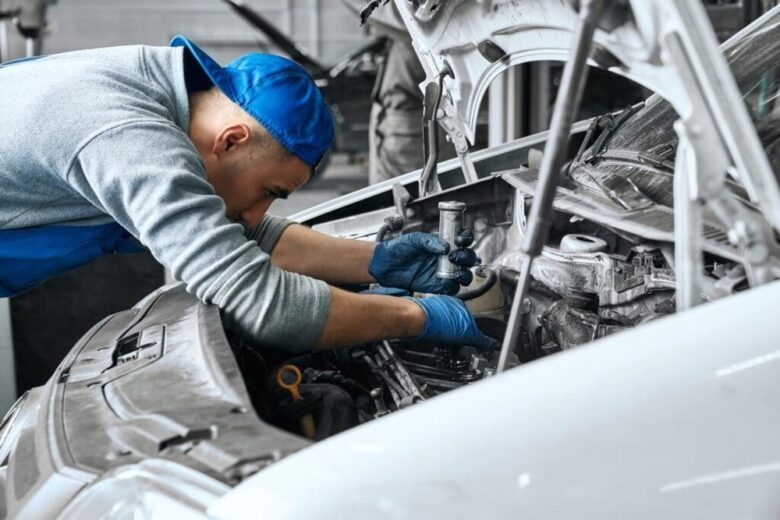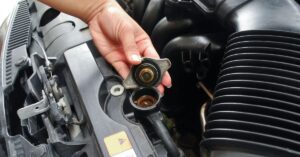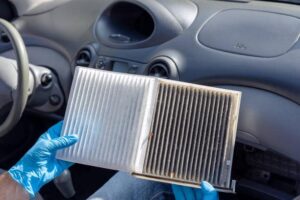Maintenance is important to ensure that your car is safe, drives well and lasts a long time. Regular maintenance and inspections not only help prevent equipment from breaking down when least expected, but can also save you money in the long run by avoiding expensive repairs. No matter how long you’ve been driving, or how new you are to cars, understanding the basics of car maintenance can make your driving experience much better. Here you will find a complete list of the most important car care tips that every car owner should know.
1. Change the Engine Oil Regularly:
Changing your engine oil regularly is one of the most basic things you can do to keep your car in good condition. Motor oil keeps your engine’s moving parts running smoothly, reducing friction and drawing heat away from your engine. This is as a result of the engine and outside elements contaminating and deteriorating motor oil over time. Failure to change the oil can damage the engine and reduce performance. In general, you should change your oil every 3,000 to 5,000 miles. However, the owner’s manual for your specific model contains more specific instructions.
2. Look at the Tread and Tire Pressure:
Tires are the only part of your car that touches the road, so it is important to keep them in good condition for your safety. When tires are properly filled, they work better and use less gasoline. Tires that are too low will cause uneven wear and need to be replaced before they need replacing, while tires that are too high will make your car wobble and increase the risk of collisions. Check the pressure of all tires, including spare tires, every month and before a long trip. Also pay attention to the tread height to ensure that your tires have good grip on the road, especially in bad weather.
3. Check the Battery Regularly:
When the car is not in use, the battery supplies the starter motor and all other electrical components with power. If the terminals are inactive, your car may not start because the electrical connection is not good. Be sure to inspect the battery and clean the connections to eliminate any corrosion. It’s also a good idea to keep track of the age and condition of your battery, as most batteries need to be replaced every three to five years, depending on how the battery is used and the weather.
4. Buy New Windshield Wipers:
Visibility is very important when driving, and windshield wipers are an important part of keeping everything clean in rain or snow. If your wiper blades are worn or damaged, they can leave marks, obscure your vision and make driving dangerous. In general, you should replace your wiper blades with new ones every six to twelve months. Fortunately, replacing the wiper blade is inexpensive and can usually be done without the help of a professional.
5. Check the Fluids Regularly:
Your car requires a variety of fluids to run easily and efficiently. Some of these include transmission fluid, brake fluid, power steering fluid, and coolant. It is important to monitor these fluids and add or replace them as necessary. Insufficient water can cause the engine to overheat, and insufficient brake fluid can make it difficult to stop. Inspection and replacement times are different for each fluid. Therefore, consult your owner’s manual for specific instructions.
6. How to Keep Your Car Clean:
It may seem like the only reason to keep your car clean is for aesthetics, but there are some useful reasons to do so. The bodywork and wheels can rust due to dirt, dust and road salt. Washing your clothes regularly can prevent this damage, especially in places with harsh winters or near salty and wet coasts. To have a beautiful and healthy environment in your car, you must also keep it clean.
7. Follow the Service Plan:
Each vehicle comes with a manufacturer’s maintenance schedule that tells you when to perform certain maintenance tasks, such as replacing filters, replacing the timing belt and repairing the air conditioning. Following this plan is important to keep your car running properly and avoid mechanical problems. You can also identify potential problems by performing regular service checks before they worsen. This saves you time and money.
Conclusion:
By following these simple maintenance tips, you can ensure that your car remains safe, reliable, and efficient throughout its life. Regular maintenance on your car not only extends its lifespan, but also makes driving more enjoyable. Be sure to check your car’s owner’s manual for specific maintenance tips for your model.
FAQs:
1. How often should I change my car’s oil?
It’s a good rule of thumb to change your car’s engine oil every 3,000 to 5,000 miles, but this can vary by brand and model of motor oil depending on the type of oil you use and how you drive. Be sure to consult the owner’s manual for the manufacturer’s instructions.
2. How do I know if I need new tires?
Check the depth of the tire tread. The minimum amount of tread allowed is 2/32 inch. You can use the tread depth measurement or the penny test. Place a coin in the tread and turn it over so that Lincoln’s head is pointing down. If you can see the top of your Lincoln’s head, it’s time for new tires. Also check your tires for cracks, bulges, or signs of uneven wear.
3. How do I know if my car battery needs to be replaced?
Some common symptoms include the car having trouble starting, dim headlights or electrical problems, or a battery warning light appearing on the dashboard. If the battery is more than three years old, it should be checked or replaced regularly to prevent battery damage when you least expect it.
4. How often do I check the fluids in my vehicle?
Primary fluids should be checked at least monthly. These are engine oil, coolant, brake fluid, power steering fluid, and windshield washer fluid. See the owner’s manual for specific information and steps.
5. Is it really important that you stick to your car’s maintenance schedule?
Yes, following the manufacturer-provided maintenance schedule is important to keep your car in good long-term health. By following a regular maintenance schedule, you can avoid major repairs, keep your car running smoothly, and maintain its value.




